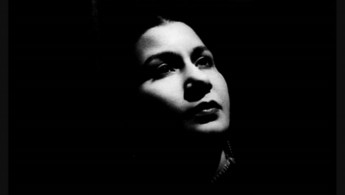Oum Kulthoum, the Arab nationalist singer beloved by Israel
The announcement that the Hebrew-speaking Israeli media would commemorate the 40th anniversary of the death of Oum Kulthoum, is a measure of the extent to which the voice of the legendary Egyptian singer penetrated far beyond the Arab world.
Oum Kulthoum's voice was one of the means by which the West could gain insight into the Arab conscience. And in Israel, for over 50 years the Voice of Israel, the country's state radio station, has broadcast Oum Kulthoum in the
| 40 years since Oum Koulthoum passed | |
| Read also: | |
| A genius and a muse | |
| Her army of archivists | |
afternoon in its music hour after the Israeli news bulletin has spewed out its poison.
But the real import, the soul in that voice that bore that sorrow cannot be destroyed or understood by these scoundrels who stole Palestine.
Oum Kulthoum was nationalist in spirit and music, loved by millions, supported pan-Arabism and freedom.
When I was a child, I remember a relative, Najib, was enjoying Oum Kulthoum's music. He asked the man whose radio it was, "What station is this?" He replied "Israeli". Najib angrily spurted: "Change it, to hell with them." He felt as if the occupiers had stolen a treasure that belonged exclusively to him and his people.
| The word Palestine is like the beating of a drum, it gives you courage, makes you strong and inspires you to take action. -Umm Kulthum |
Israel has felt free to air Oum Kulthoum's songs without acquiring the rights for them, and has achieved several goals in doing so. In a new form of Israeli theft, it has tried to use Oum Kulthoum's art to normalise cultural relations with Arabs . Many Israeli singers have covered songs by the "Star of the East" to attract an Arab audience. Israeli singer Ziv Yehezkel has become famous singing Oum Kulthoum songs, in particular "Amal Hayati" (The hope of my life. It may not be a coincidence that Yehezkel has singled out this song. In attendance at the first concert in which the "Lady of Arab music" sang this Mohamed Abdel Wahab composition in 1965 was the president, Gamal Abdel Nasser and his entourage .
Oum Kulthoum was widely respected for the role she and her music played in the 1952 revolution, which brought Nasser to power and raised the morale of the nation during the Tripartite Aggression (the Suez crisis) in 1956. Her music was used to promote economic independence, development, the anti-colonisation movement and Arab nationalism.
Oum Kulthoum and her majestic voice was also the accompaniment to all of the tragedy of Palestine. Whenever she spoke about Palestine in her radio interviews, she never equivocated: the land, its people had to be liberated and saved from the Zionists.
This bond, which went beyond just mere solidarity, may have come from her personal experiences in Palestine, her memories there, and with its people.
Oum Kulthoum in Palestine
She visited the country several times and sang for the Palestinians. The first time she went was in 1928. She said she accepted without hesitation the invite from the Arab Youth Association in Haifa.
"When I went and my heart was filled with longing and yearning," said Umm Kulthum about the visit. Sadly, this compassion had not affected the conscience of the majority of the Egyptian literary and intellectual elite, some of whom attended the opening ceremonies of the Hebrew University of Jerusalem 10 years earlier.
On Oum Kulthoum's second visit to Palestine she took the train from Jerusalem to the Palestinian coast to sing and rejoice with Palestinians in their homeland. In May 1967, she rushed to sing "Arab Armies, God is with You". This was before she had memorised all the lyrics. She went on stage with the poet, Saleh Gawdat, behind her, dictating each line. She sang it with passion, including these famous lines: "The word Palestine is like the beating of a drum, it gives you courage, makes you strong and inspires you to take action."
It is natural the occupiers will try to appropriate her songs for themselves and use them to normalise relations culturally with Palestinians.
It will never happen.
This is an edited translation from our Arabic edition.


![President Pezeshkian has denounced Israel's attacks on Lebanon [Getty]](/sites/default/files/styles/image_684x385/public/2173482924.jpeg?h=a5f2f23a&itok=q3evVtko)



 Follow the Middle East's top stories in English at The New Arab on Google News
Follow the Middle East's top stories in English at The New Arab on Google News


